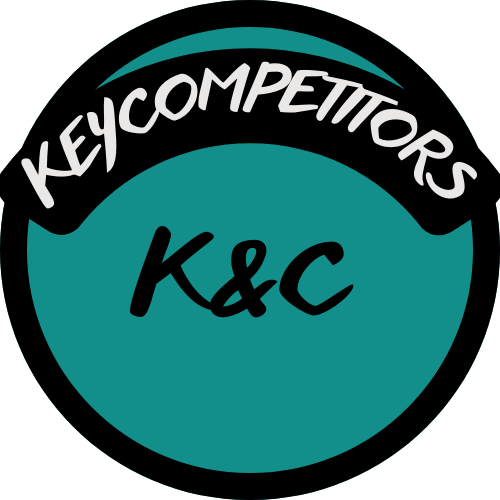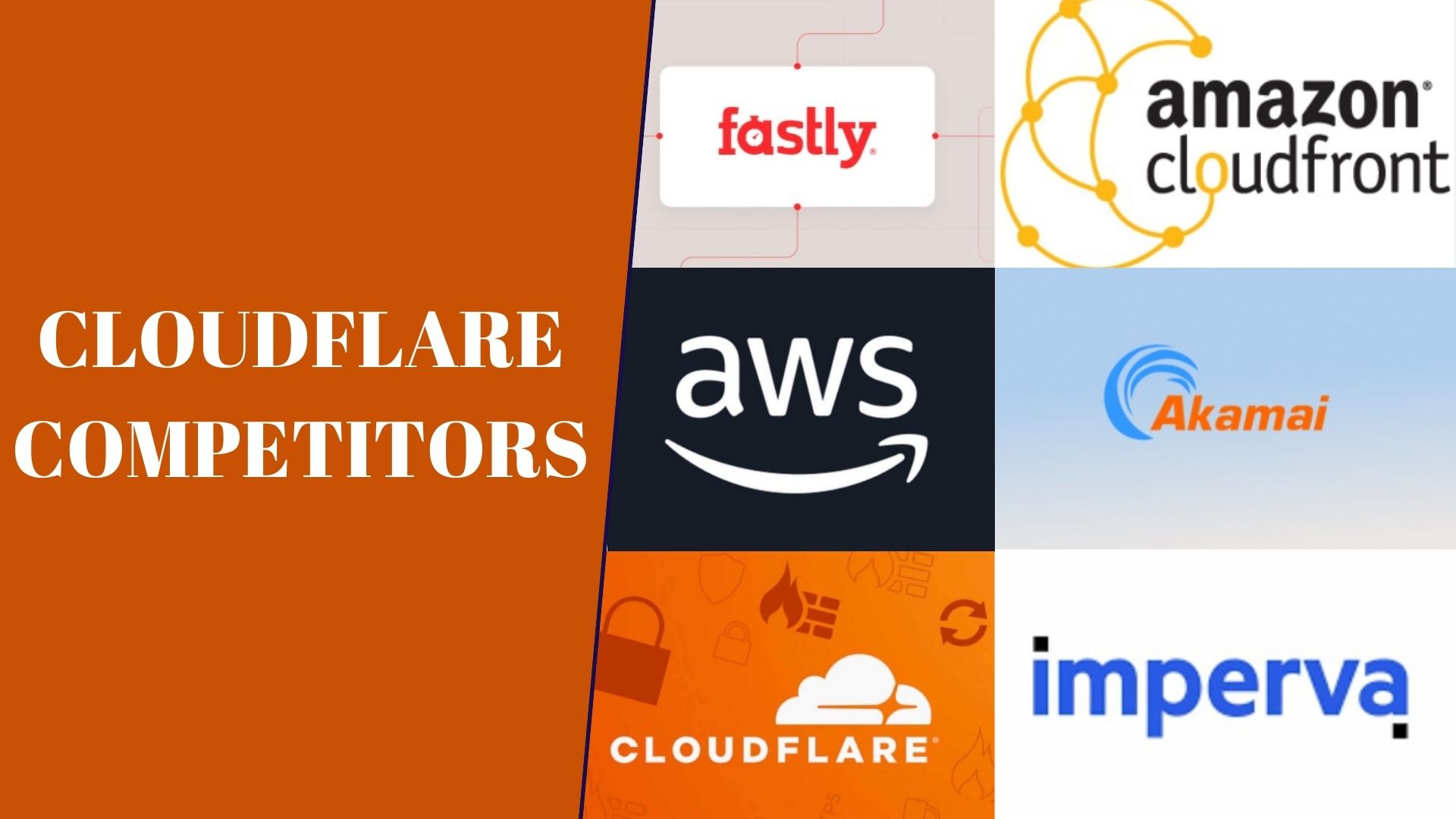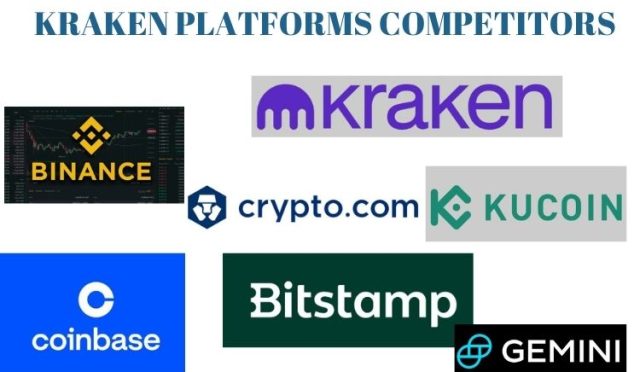Introduction
In the ever-evolving world of cloud-based security and performance solutions, Cloudflare competitors are vying for market dominance by offering innovative alternatives to businesses seeking to secure and optimize their online presence. Cloudflare, Inc. (NET) has established itself as a significant player in this space, but the competitive landscape is dynamic, with several companies providing robust solutions in content delivery networks (CDN), web application firewalls (WAF), DDoS protection, and other critical services. This article explores the key players, their strengths and weaknesses, and their contributions to the growing market of cloud-based security and performance.
The Cloud-Based Security and Performance Arena
Cloudflare has become a household name for businesses looking to enhance website security, speed, and reliability. Its offerings, including DDoS protection, CDN services, Zero Trust security, and web application firewalls, have gained immense popularity due to their scalability, affordability, and ease of use. However, the market is fiercely competitive, with Cloudflare competitors continuously innovating and expanding their offerings.
From established CDN providers like Akamai Technologies to cloud giants like Amazon CloudFront, and niche players like Fastly and Imperva, the competition is intense. Understanding these competitors’ strengths and weaknesses is vital for businesses aiming to make informed decisions about their security and performance needs.
Key Cloudflare Competitors: An Overview
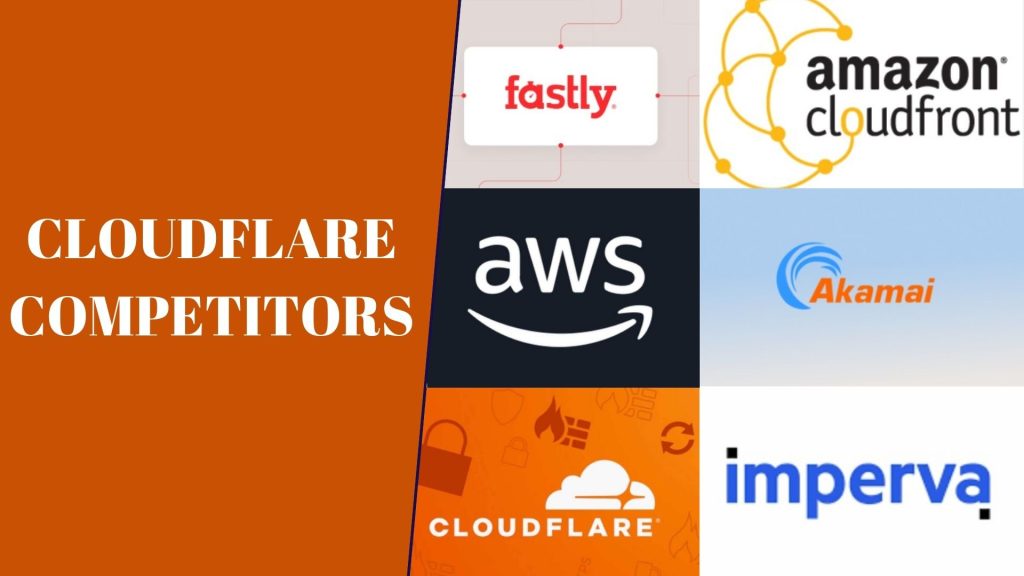
To better understand the competitive landscape, let’s examine the most notable Cloudflare competitors, categorized by their primary focus areas.
Akamai Technologies

- Founded: 1998
- Headquarters: Cambridge, Massachusetts, USA
- Strengths: Akamai is a pioneer in the CDN industry, known for its global network, high performance, and reliability. It has a strong foothold in video streaming and enterprise-level solutions.
- Weaknesses: Akamai’s platform can be complex to manage, and its services are often more expensive than competitors.
Amazon CloudFront (AWS)
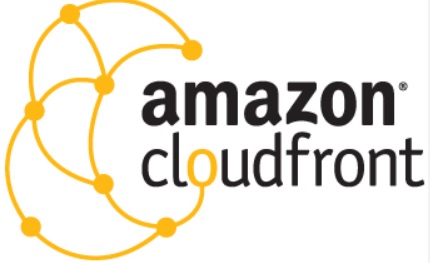
- Founded: 2008 (part of Amazon Web Services)
- Headquarters: Seattle, Washington, USA
- Strengths: Amazon CloudFront offers seamless integration with the AWS ecosystem, making it a cost-effective choice for AWS users. Its scalability and global network are also significant advantages.
- Weaknesses: While it is a reliable CDN solution, its features are limited compared to dedicated security providers like Cloudflare. Additionally, vendor lock-in can be a concern for AWS customers.
Fastly

- Founded: 2011
- Headquarters: San Francisco, California, USA
- Strengths: Fastly is a developer-focused CDN platform known for its flexibility, programmability, and strong performance. It is especially popular among technical users.
- Weaknesses: Fastly operates on a smaller scale compared to Akamai and Cloudflare, and its pricing can be higher for certain use cases.
Imperva

- Founded: 2002
- Headquarters: Redwood Shores, California, USA
- Strengths: Imperva specializes in web application security, offering advanced DDoS mitigation, bot management, and API security.
- Weaknesses: While Imperva is strong in security, it may lack the scalability and performance optimization features offered by Cloudflare. Its solutions are also more expensive than many competitors.
Comparative Market Share and Product Range
Market Share
The market for CDNs and cloud-based security solutions is vast, with Cloudflare competitors holding significant shares:
- CDN Market Share:
- Akamai: ~20% (leader in CDN)
- Cloudflare: ~15% (rapid growth)
- Amazon CloudFront: ~12% (integrated with AWS)
- DDoS Protection Market Share:
- Cloudflare: ~25% (leading provider)
- Web Application Firewall (WAF) Market Share:
- Akamai: ~15% (established player)
- Cloudflare: ~10% (growing rapidly)
Product Offerings
Each Cloudflare competitor brings a unique set of features to the table:
- Cloudflare: CDN, DDoS protection, WAF, Zero Trust services, DNS services, bot management.
- Akamai: CDN, web security, application performance solutions, network delivery.
- Amazon CloudFront: CDN, DDoS mitigation, WAF, integrated AWS security services.
- Fastly: CDN, application delivery, edge computing, security.
- Imperva: WAF, DDoS protection, API security, advanced database security.
Strengths and Weaknesses of Cloudflare Competitors
Cloudflare
- Strengths: Global network, ease of use, affordable pricing, extensive free plan, and a wide range of services.
- Weaknesses: Enterprise solutions can be complex and expensive, and customer support can be inconsistent.
Akamai Technologies
- Strengths: Industry leader in CDN, strong performance, and reliability.
- Weaknesses: Higher costs and complexity in platform management.
Amazon CloudFront
- Strengths: Tight AWS integration, scalability, and cost-effectiveness for AWS users.
- Weaknesses: Limited features compared to dedicated CDN providers and potential vendor lock-in.
Fastly
- Strengths: Developer-friendly, flexible, and high-performing platform.
- Weaknesses: Smaller scale and higher costs for some use cases.
Imperva
- Strengths: Robust security solutions, advanced DDoS protection, and API security.
- Weaknesses: Higher costs and limited scalability compared to Cloudflare.
Factors to Consider When Choosing a Provider
When evaluating Cloudflare competitors, businesses should consider the following factors:
Performance
Fast website loading speeds and reliable service are critical. Akamai and Fastly are renowned for their high-performance CDNs.
Security
Strong security features are essential for protecting websites and applications. Cloudflare and Imperva lead in this area, offering comprehensive solutions.
Ease of Use
Cloudflare is widely recognized for its user-friendly interface and straightforward setup, making it an excellent choice for smaller businesses.
Cost
Cloudflare’s generous free tier is attractive to budget-conscious users, while Amazon CloudFront offers cost advantages for AWS users.
Scalability
For businesses experiencing rapid growth, scalability is key. Cloudflare and Amazon CloudFront excel in handling high traffic and demand.
Investments and Future Plans
The competitive landscape in cloud-based security and performance is shaped by continuous innovation. Here’s how Cloudflare competitors are planning for the future:
- Cloudflare: Expanding Zero Trust security offerings, investing in edge computing and AI technologies.
- Akamai: Enhancing cloud security, edge computing, and video streaming capabilities.
- Amazon CloudFront: Growing its global network and integrating with AWS security services.
- Fastly: Improving edge computing platforms and security features.
- Imperva: Focusing on application and data security while expanding DDoS protection capabilities.
Customer Satisfaction and Market Trends
Consumer Preferences
- Performance: Akamai and Fastly are praised for speed and reliability.
- Security: Cloudflare and Imperva are preferred for robust security features.
- Ease of Use: Cloudflare is a favorite among smaller businesses for its simplicity.
- Cost: Cloudflare’s free tier and Amazon CloudFront’s AWS integration offer cost advantages.
Customer Feedback
- Cloudflare: High satisfaction for performance, ease of use, and comprehensive features.
- Akamai: Mixed reviews due to complexity but appreciated for reliability.
- Amazon CloudFront: Positive feedback from AWS users, though limited features are noted.
- Fastly: Strong support and performance, especially among developers.
- Imperva: Excellent security features but higher costs.
Conclusion: The Competitive Landscape
The market for cloud-based security and performance solutions is teeming with innovation and competition. While Cloudflare remains a leader with its comprehensive platform and focus on ease of use, Cloudflare competitors like Akamai, Amazon CloudFront, Fastly, and Imperva bring unique strengths to the table.
Choosing the right provider depends on a business’s specific needs, whether it’s high performance, robust security, cost-effectiveness, or scalability. As the market continues to evolve, understanding the competitive landscape is crucial for businesses seeking to secure and optimize their online presence.
FAQ: Cloudflare Competitors
This FAQ addresses common questions about Cloudflare competitors, their strengths, weaknesses, and how they compare to Cloudflare. Whether you’re a business owner, developer, or IT professional, these answers will help you make informed decisions about choosing the right solution for your needs.
Who are Cloudflare’s main competitors?
Cloudflare’s primary competitors include Akamai Technologies, Amazon CloudFront (AWS), Fastly, and Imperva. Each of these companies offers solutions like content delivery networks (CDNs), DDoS protection, and web application firewalls (WAFs). They compete with Cloudflare by focusing on different strengths, such as performance, security, scalability, or integration with other platforms.
What makes Akamai a strong competitor to Cloudflare?
Akamai is one of the most established players in the CDN market, with a global network that ensures high performance and reliability. Its platform is particularly well-suited for large enterprises and industries like video streaming. However, Akamai’s services can be more complex and expensive than Cloudflare, which is often a better choice for smaller businesses or those seeking ease of use.
Why is Amazon CloudFront considered a competitor to Cloudflare?
Amazon CloudFront is tightly integrated with the AWS ecosystem, making it a cost-effective and scalable option for businesses already using AWS services. While it excels in scalability and integration, it may lack some of the advanced security features and user-friendly interface that Cloudflare provides.
How does Fastly differentiate itself from Cloudflare?
Fastly focuses on providing a developer-friendly platform with strong programmability and flexibility. It is especially popular among technical users who need customizable solutions. However, compared to Cloudflare, Fastly operates on a smaller scale and may be more expensive for certain use cases.
What are Imperva’s key strengths compared to Cloudflare?
Imperva specializes in web application security, offering advanced solutions for DDoS mitigation, API security, and bot management. While Cloudflare provides a broader range of services, Imperva’s deep focus on security makes it a strong choice for businesses with complex security needs. However, its higher costs can be a drawback for budget-conscious users.
Which competitor offers the best CDN performance?
When it comes to CDN performance, Akamai and Fastly are often regarded as leaders. Akamai excels in reliability and global coverage, while Fastly is known for its speed and developer-focused features. Cloudflare, on the other hand, balances performance with affordability and ease of use, making it a strong contender.
Is Cloudflare better for small businesses compared to its competitors?
Yes, Cloudflare is often considered the best choice for small businesses due to its ease of use, affordability, and generous free tier. It simplifies the setup process and provides robust security and performance features without requiring extensive technical expertise. Competitors like Akamai and Imperva, while powerful, are often more complex and expensive.
How does pricing compare between Cloudflare and its competitors?
Cloudflare stands out with its free tier, which includes essential security and performance features. For paid plans, Cloudflare remains competitive. Akamai and Imperva tend to be more expensive and are geared toward enterprise clients. Amazon CloudFront can be cost-effective for AWS users, while Fastly’s pricing depends on usage and may be higher for some scenarios.
Which provider is best for enterprise-level solutions?
For enterprise-level solutions, Akamai is a top choice due to its robust infrastructure, global presence, and performance optimization. Cloudflare is also a strong contender, especially for enterprises seeking comprehensive security solutions alongside performance enhancements. Imperva is ideal for enterprises with advanced security needs.
How does Cloudflare compare to its competitors in DDoS protection?
Cloudflare is a market leader in DDoS protection, holding approximately 25% market share. Its advanced mitigation techniques and global network make it highly effective against large-scale attacks. While Imperva also provides excellent DDoS protection, Cloudflare’s ease of use and affordability give it an edge over competitors like Akamai and Amazon CloudFront.
What are the main weaknesses of Cloudflare competitors?
Each competitor has its own weaknesses:
- Akamai: High costs and complexity.
- Amazon CloudFront: Limited features outside the AWS ecosystem.
- Fastly: Smaller scale and potentially higher costs.
- Imperva: Expensive and less scalable compared to Cloudflare.
Cloudflare, by contrast, offers a well-rounded solution, though its enterprise plans can also become costly.
Which competitor is best for developers?
Fastly is often the preferred choice for developers due to its programmable edge computing platform and flexibility. While Cloudflare is also developer-friendly, Fastly’s focus on customization and real-time updates makes it particularly appealing to technical users.
How do customer satisfaction levels compare among Cloudflare competitors?
- Cloudflare: High satisfaction for ease of use, affordability, and comprehensive features.
- Akamai: Mixed reviews due to complexity but praised for performance.
- Amazon CloudFront: Positive feedback from AWS users but limited appeal outside that ecosystem.
- Fastly: Strong support and performance, especially among developers.
- Imperva: Excellent security features but criticized for high costs.
What are the future plans of Cloudflare competitors?
- Akamai: Investing in edge computing and video streaming.
- Amazon CloudFront: Expanding its global network and integrating with AWS security.
- Fastly: Enhancing its edge computing and security features.
- Imperva: Expanding its DDoS protection and API security capabilities.
Cloudflare, meanwhile, is focusing on Zero Trust security and AI technologies.
How should I choose between Cloudflare and its competitors?
The right choice depends on your specific needs:
- If you prioritize ease of use and affordability, Cloudflare is a great option.
- For enterprise-grade performance, Akamai is a strong contender.
- If you are an AWS user, Amazon CloudFront offers seamless integration.
- Developers seeking customization may prefer Fastly.
- For advanced security, Imperva is ideal.
By considering your budget, technical requirements, and scalability needs, you can select the solution that best aligns with your goals.
This FAQ highlights the diverse strengths and weaknesses of Cloudflare competitors, helping businesses and developers navigate the competitive landscape with confidence. If you liked this analysis, we recommend you also review my analysis of Zscaler competitors.
